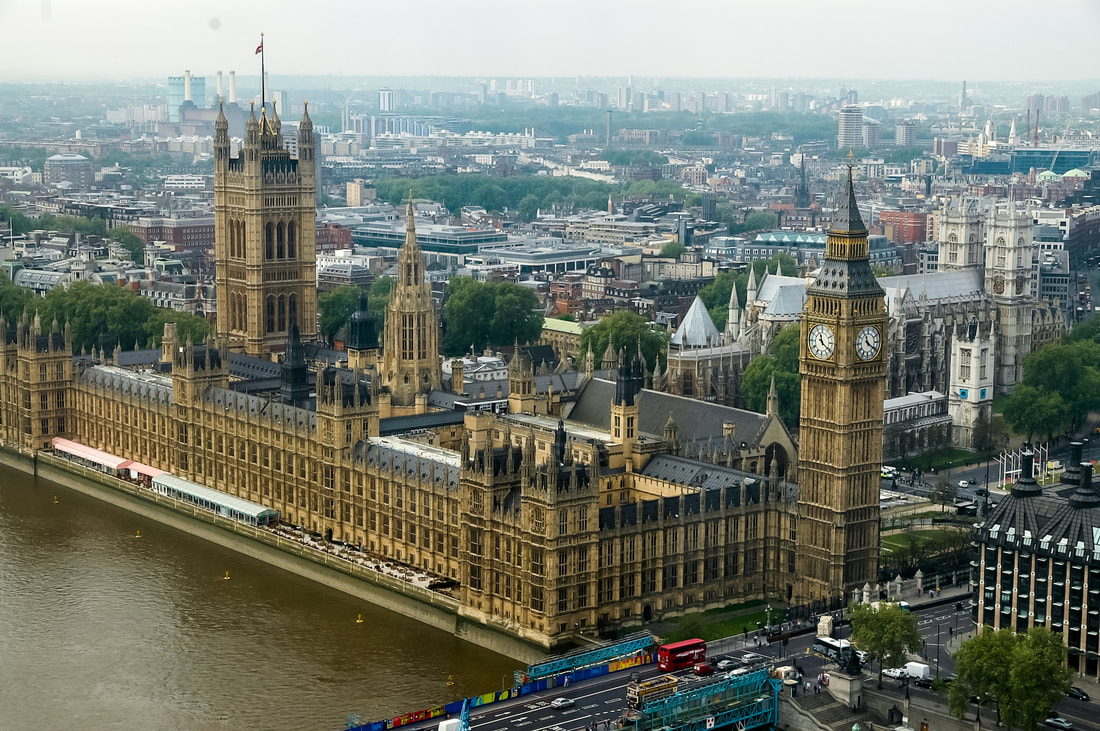|
Media coverage of Tuesday’s debate session on the Brexit bill depicts the U.K. parliament in disarray. The ruling party is portrayed as particularly divided and Prime Minister May as being in a weakened position and facing a “battle.” In other words, the situation seems dramatic. The part of us that enjoys gossip might find this interesting, but it does little to inform the public about what’s going on with the process of the U.K. leaving the EU. So how does the news add drama? Let’s look at four ways. 1. Call disagreement in a party a “rebellion”
Fact: Up to 20 members of May’s Conservative Party, sometimes called Tories, have said they would not vote to approve some of May’s Brexit measures, including a bill to put a March 29, 2019, withdrawal deadline into law. Media interpretation: “Dominic Grieve, the ringleader of the Tory rebels, has declared he intends to vote against the government’s efforts to fix the date of Brexit…” (The Guardian) “May is facing a rebellion from Tory members of Parliament…” (Bloomberg) “Tories… threaten revolt” (Bloomberg)Although these terms are sometimes used in politics, they are dramatic and could distort the public’s view of the disagreement. We’re essentially talking about MPs not voting with their party on a single issue. Calling it a rebellion could suggest they’re metaphorically trying to overthrow or disempower the government. 2. Suggest PM May doesn’t have a hold on parliament Fact: Prime Minister May and her government will require parliamentary approval of the final Brexit agreement and other bills related to the process, as ruled by the U.K. Supreme Court. Not all MPs agree on May’s strategy. Media interpretation: “…a sign that Theresa May will face a battle to get her withdrawal bill through the House of Commons…” (The Guardian) “Pro-EU MPs dealt a blow to Theresa May’s Brexit strategy…” (FT) “…a delay could deepen Mrs May’s problems in parliament.” (FT)These descriptions sensationalize the process of getting a bill passed, and could undermine May’s perceived credibility. Ideally, media could neutrally inform which members are not in support of each of the bills. 3. Focus on politicians’ most sensational and critical quotes Fact: Some MPs have criticized aspects of the EU Withdrawal Bill, including the planned withdrawal date of March 29, 2019. Some of these quotes have been sensational. Media focus on most sensational, critical: “Labour attacks Brexit date ‘gimmick’…” (BBC’s headline) “Tories Attack May’s ‘Mad’ Brexit Date Law” (Bloomberg’s headline) Dominic Grieve “described Brexit as an ‘extraordinarily painful process of national self-mutilation’…” (The Guardian’s second sentence)It’s true that some politicians voiced criticism of Brexit deadline, and it’s important for the news to include this. But the coverage we read focuses on some of the most dramatic things said, and puts them before explanations of what’s actually being decided. This could promote bias against the Brexit measures. (You can read more about this concept in this recent analysis.) More responsible coverage might choose quotes that offer more explanation, and present the data of what’s being debated first. 4. Missing or downplaying other politician’s perspectives Fact: Some MPs criticized the Brexit bill, including the deadline. Others supported it. Media focus on one-side: “Bernard Jenkin, a senior Tory Brexit supporter, also argued that fixing the date was essential to avoid the impression that the UK could be playing for extra time to strike a deal.” (The Guardian, in the last third of the article)Some outlets included a few sentences about why the deadline would be valuable, while others, like Bloomberg, didn’t. When explanations or support was presented, it was generally done so late in an article (after much criticism). This feeds into the bias from #3 above. The process of the U.K. leaving the EU is complex, and might impact many aspects of Britons’ lives, as well as others in the EU and beyond. Providing objective information, instead of focusing on drama, would better help the public understand what’s happening and what to expect. Written by Analea Holland and Julia Berry López Edited by Julia Berry López, Jens Erik Gould and Rosa Laura Junco Visit the original story on Knife Media’s website Follow us on Twitter @theknifemedia Follow us on LinkedIn Comments are closed.
|
Jens Erik GouldJens is a political, business and entertainment writer and editor who has reported from a dozen countries for media outlets including The New York Times, National Public Radio and Bloomberg News Archives
February 2018
Categories
All
|

 RSS Feed
RSS Feed